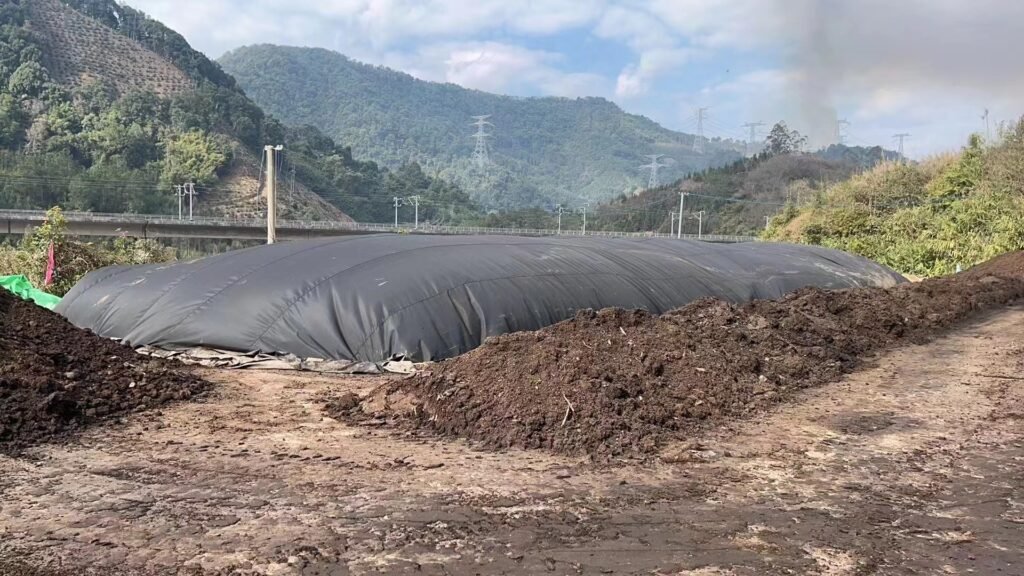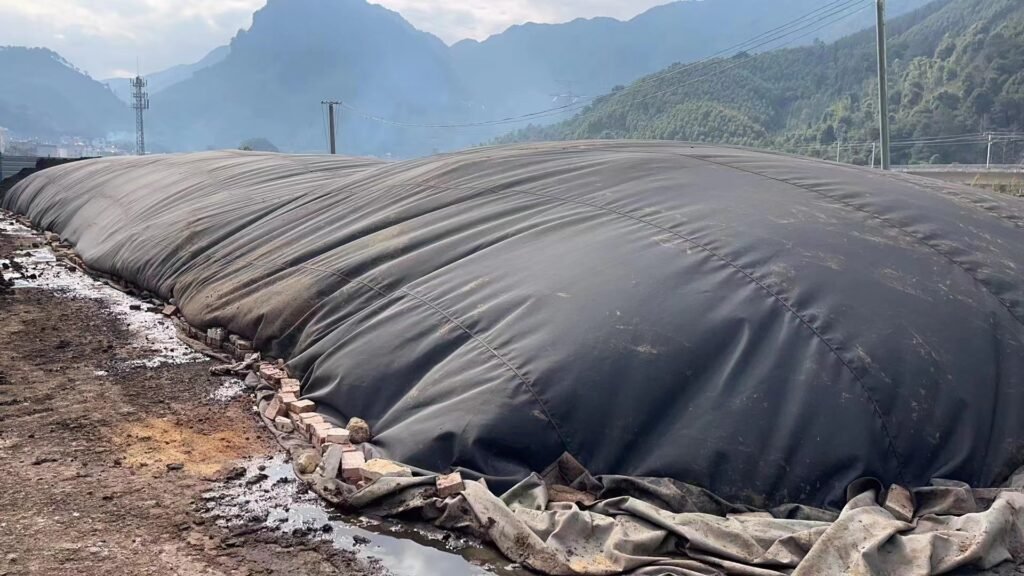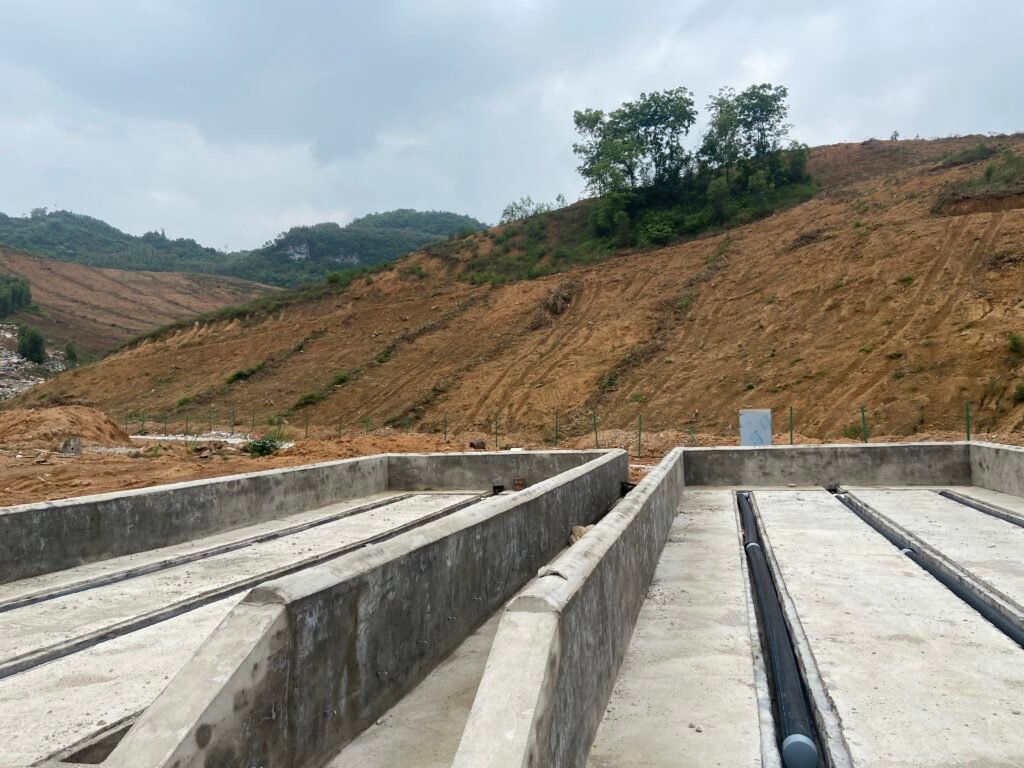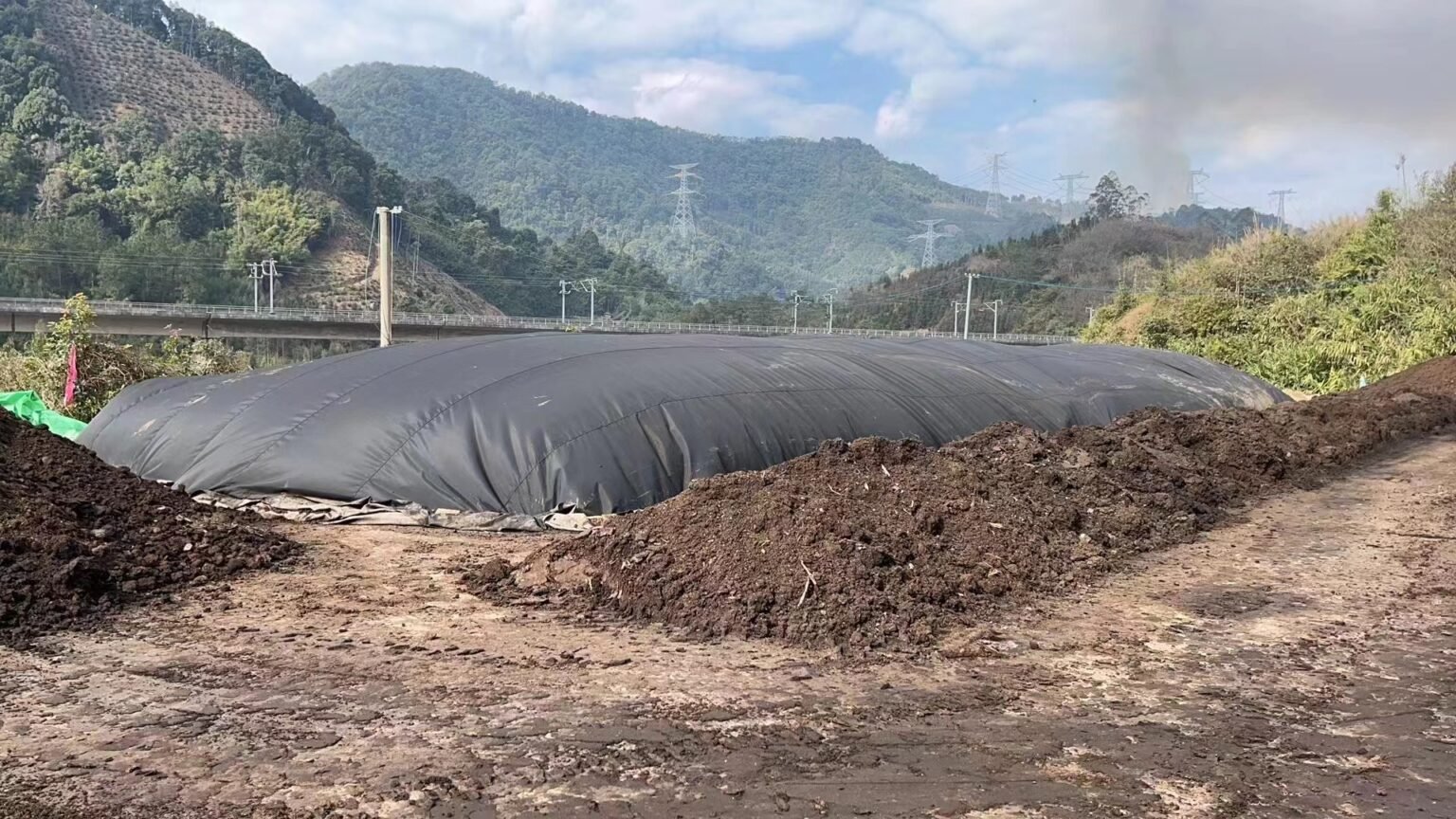Case Study | HEZHOU, GUANGXI

1 . Project Background
Guangxi’s Hezhou City is a major pork-producing region. Hundreds of small and mid-size farms generate large volumes of pig manure, often stored in open piles that trigger odour complaints and water-pollution risks. In 2024 the Hezhou Agriculture & Rural Affairs Bureau launched a “Manure → Fertiliser” initiative, aiming to turn waste into profit while meeting tightened environmental regulations.
2 . Jiesonglin Solution

Under a government–enterprise partnership, 20 pilot farms each received a 200 m³ e-PTFE membrane composter supplied by Jiesonglin Technology:
- On-site composting pad reserved at every farm
- Pig manure blended with rice husk / sawdust, loaded into compost cell
- Gas-permeable nanomembrane cover + smart aeration & temperature control
- Fully sealed process—no odour, seepage or fly nuisance
The “farm-level compost point” model keeps treatment local and scalable.
3 . Quantifiable Results

| Indicator | Value |
|---|---|
| Composting cycle | ≈ 25 days (vs. 45–60 days before) |
| Annual fertiliser output | ≈ 30 000 t across 20 units |
| Environmental impact | Dramatic drop in untreated manure discharge; odour & leachate eliminated |
| Agricultural benefit | Organic fertiliser returned to orchards, vegetable plots and maize fields—cutting chemical NPK use |
4 . User & Government Feedback
“Summer used to mean unbearable odour. With the new composter it’s clean and hassle-free; the fertiliser feeds my own crops and saves costs.”
— Local pig-farm owner, Hezhou
“Membrane composting is simple to operate and ideal for smallholder farms. It’s a powerful tool for rural environmental improvement and will be rolled out city-wide.”
— Hezhou Agriculture & Rural Affairs Bureau





